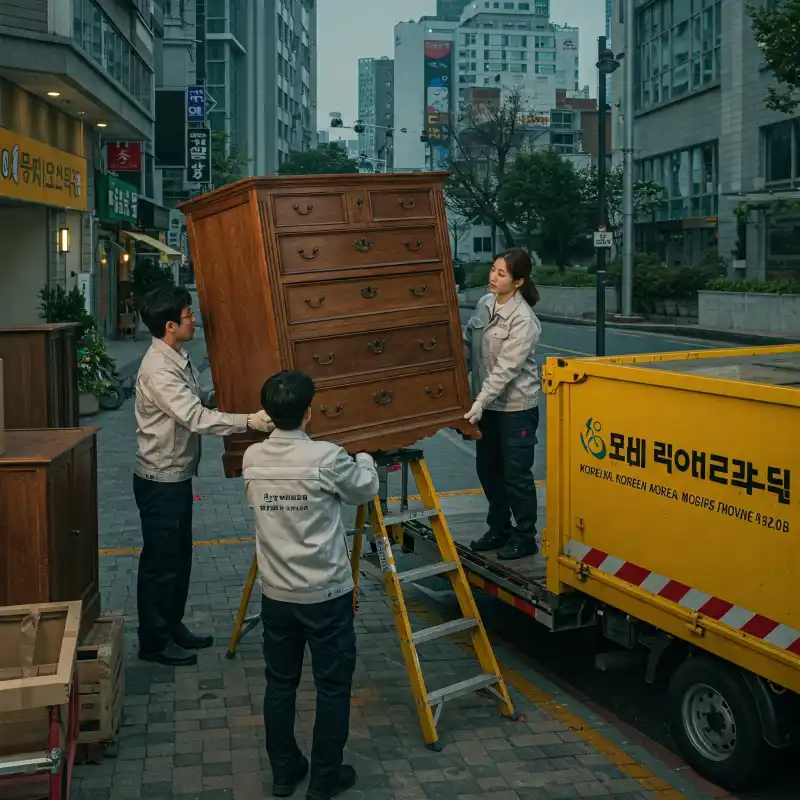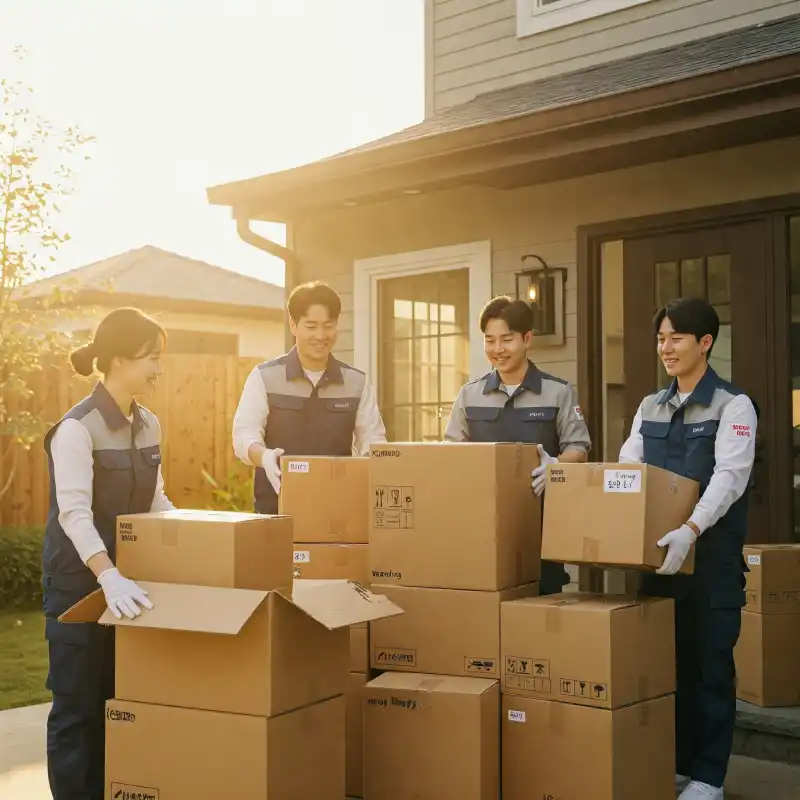
Small-scale solar power generation plays an important role in the Korean energy market and has steadily grown in line with the government's eco-friendly energy policies. Generally, solar power plants with a generation capacity of less than 100kW are classified as small-scale solar power generation businesses, and these businesses are often led by individuals, farmers, and small businesses. As cases of installing solar power generation facilities using idle land in rural areas increase, it also contributes to increasing farm household income. As of the end of 2023, tens of thousands of small-scale solar power plants are operating in Korea, accounting for a significant portion of the total solar power generation capacity. Small-scale operators heavily rely on the sale of RECs (Renewable Energy Certificates) to recover initial investment costs and generate profits. However, due to the recent drop in REC prices, profitability has deteriorated, causing many operators to face difficulties. In particular, operators who have not entered into fixed-price contracts are directly exposed to market price fluctuations, facing even more severe situations. The government is implementing various support policies to promote small-scale solar power generation, but it is urgent to find a fundamental solution to REC price volatility. In addition, issues such as environmental destruction due to the increase in the installation of solar power generation facilities and problems with grid interconnection remain to be resolved. For the sustainable growth of small-scale solar power generation businesses, it is necessary to stabilize the REC market, establish an efficient transmission system, and introduce environmentally friendly power generation methods.
A REC, or Renewable Energy Certificate, is a certificate issued by the government to Renewable Portfolio Standard (RPS) obligated parties in proportion to the amount of renewable energy generated. The RPS (Renewable Portfolio Standard) system mandates that power generators of a certain size or larger (RPS obligated parties) supply a certain percentage or more of their total power generation from renewable energy sources, aiming to expand the adoption of renewable energy. RECs are a core element in the operation of this RPS system and an important means of guaranteeing the income of renewable energy power generators. For example, power generation public corporations, subsidiaries of Korea Electric Power Corporation, and private power generation companies are RPS obligated parties. They must either operate renewable energy power generation facilities directly or purchase RECs from other renewable energy power generators to meet their mandatory supply volume. 1 REC corresponds to 1 MWh of renewable energy power generation and can be issued for electricity generated from various renewable energy sources such as solar, wind, hydro, and biomass. RECs are traded in the market, and the price fluctuates according to supply and demand. Small-scale solar power generators can earn additional income by selling RECs in addition to selling the electricity they produce. Therefore, REC prices directly affect the profitability of small-scale solar power generators. The Korea Energy Agency is responsible for issuing and trading RECs and is working to operate a transparent and efficient market. However, the recent increase in excessive REC supply has led to a price drop, increasing the difficulties faced by small-scale solar power generators.
REC prices are basically determined by the principles of supply and demand. RPS obligated parties generate REC purchase demand according to the amount of renewable energy they are obligated to supply, and renewable energy power generators supply RECs to the market according to their power generation volume. The REC market can be broadly divided into the spot market and the long-term contract market. The spot market is a market where prices fluctuate according to short-term supply and demand, and transactions are conducted through the REC trading platform operated by the Korea Power Exchange. The long-term contract market refers to contracts in which RPS obligated parties and renewable energy power generators trade RECs at a fixed price for a certain period. Long-term contracts reduce the risk of REC price volatility, making them a preferred method for many small-scale solar power generators. However, competition for long-term contracts is high, and contract terms are often demanding. Various factors affect REC prices. First, as the RPS obligation ratio increases, the demand for RECs increases, acting as a price increase factor. Conversely, if the renewable energy power generation facility capacity increases, increasing the REC supply, it acts as a price decrease factor. In addition, government policy changes, technological advancements, and energy price fluctuations can also affect REC prices. The recent drop in REC prices is mainly attributed to the oversupply caused by the rapid increase in solar power generation facilities. The government is promoting various policies to stabilize the REC market, but it is facing difficulties in finding a fundamental solution.

Small-scale solar power operators are experiencing significant difficulties due to the decline in REC prices. The main difficulties are as follows:
These difficulties threaten the sustainability of small-scale solar power generation businesses and can negatively affect the achievement of the government's eco-friendly energy policy goals.
The drop in REC prices is causing real damage to small-scale solar power operators. Here are some actual damage cases.
| Case | Business Scale | Damage Details |
|---|---|---|
| Mr. A | 50kW | Monthly income decreased by more than 50% due to the drop in REC prices. Facing difficulties in repaying loans and completely suspended additional investment plans. |
| B Farmer | 30kW | Started a solar power generation business to supplement the decrease in agricultural income, but did not earn the expected income due to the drop in REC prices. Worried about leading to an increase in farm debt. |
| C Small Business | 80kW | Installed solar power generation facilities on the factory roof to reduce electricity bills and expect REC sales revenue, but the investment recovery period is much longer than expected due to the drop in REC prices. Acting as a burden on business operations. |
| D Power Generation Cooperative | Multiple less than 100kW | Members operated small-scale solar power plants and shared REC sales revenue, but it became difficult to pay dividends to members due to the drop in REC prices. Disruption in cooperative operation. |
As can be seen in the above examples, the drop in REC prices is exacerbating the economic difficulties of small-scale solar power operators. In particular, operators who have installed solar power generation facilities with loans are suffering from repayment burdens, and in the case of farmers or small businesses, the decrease in REC sales revenue is directly affecting household income or business operations. In addition, in the case of power generation cooperatives, they are experiencing difficulties in operating the cooperative because they cannot distribute profits to the members. These damage cases further emphasize the need for REC price stabilization.

The government is implementing various policies to solve the problem of falling REC prices and support small-scale solar power operators. The main policies are as follows:
Despite these government efforts, there are still difficulties in stabilizing REC prices. To find a more fundamental solution, a review of the overall renewable energy policy and continuous monitoring of market situation changes are needed.
Practical support measures for small-scale solar power operators struggling with falling REC prices are as follows:
These support measures will enable small-scale solar power operators to overcome the difficulties caused by falling REC prices and enable sustainable business operations.

Korea is actively promoting a transition to eco-friendly energy to respond to climate change and achieve sustainable development. However, the following challenges remain in the process of transitioning to eco-friendly energy.
To solve these challenges, the government, businesses, and civil society must cooperate to build a sustainable energy system.

Successful small-scale solar power generation business models are developing not only to rely on REC sales revenue but also to create various added values and contribute to the local community. Some successful examples are as follows.
These successful models show that small-scale solar power generation businesses can contribute to local community development beyond simple energy production. In the future, these models should be expanded and new business models should be developed to increase the sustainability of small-scale solar power generation businesses.
Q: What procedures do I need to follow to start a small-scale solar power generation business?
A: To start a small-scale solar power generation business, you must go through procedures such as establishing a business plan, selecting a site, applying for a power generation business license, installing facilities, pre-use inspection, and applying for REC issuance. You can contact the Korea Energy Agency or related organizations for detailed information on the necessary documents and procedures for each step.
Q: What is the profitability of a small-scale solar power generation business?
A: The profitability of a small-scale solar power generation business varies depending on REC prices, power generation volume, initial investment costs, maintenance costs, etc. Since REC price volatility is high, it is important to review the business feasibility from a long-term perspective and secure income stability through fixed-price contract conclusion.
Q: Are there any environmental problems when installing solar power generation facilities?
A: Environmental problems such as forest damage and soil contamination can occur during the installation of solar power generation facilities. Therefore, an environmental impact assessment should be conducted and power generation facilities should be installed in an eco-friendly manner. In addition, countermeasures for the problem of recycling solar panels must be prepared.
Q: What are the coping strategies for the drop in REC prices?
A: Coping strategies for the drop in REC prices include linking energy storage systems (ESS), concluding REC long-term contracts, improving power generation efficiency, and reducing maintenance costs. In addition, actively using government support policies and participating in local energy communities to increase business efficiency is also a good way.
Q: Where can I get information on small-scale solar power generation businesses?
A: Information on small-scale solar power generation businesses can be obtained from the websites of related organizations such as the Korea Energy Agency, the Korea Power Exchange, and the Korea Energy Agency's Renewable Energy Center. In addition, you can also obtain useful information from the Solar Power Association and energy-related civic groups.